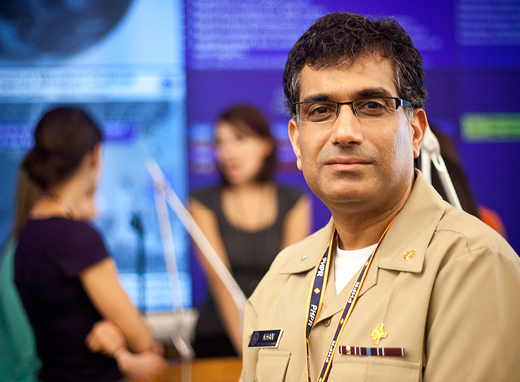In the event of a zombie epidemic, Emory alumnus Ali S. Khan is the go-to expert. Last May, he wrote a CDC blog post playing off the popularity of The Walking Dead TV series filmed in Atlanta. But the message behind the blog was real: reminding the public to prepare at home for possible emergencies.
“The zombie blog was the best $87 ever spent in the history of public health,” says Khan, director of the Office of Public Health Preparedness and Response at the CDC. “We reached 3.6 billion people, who read or heard about the blog. All fun aside, the zombies reminded people how public health protects them every day.”
No one would deny that protecting the public’s health has become an increasingly critical and complex endeavor. A decade ago, 9/11 and the anthrax attacks that followed altered the mindset of public health, law enforcement, and other experts who play a role in emergency preparedness and response. “What changed,” says Khan, “was the recognition of how critical public health is to the security of our nation.”
“It’s not just about preparing for a large, unexplained, or unpredictable event,” he adds. “It’s also about responding to routine public health events every day.”
In the past 50 years, the potential and capacity of a few individuals to intentionally harm large populations—through infectious disease agents, chemical weapons, nuclear or radiologic devices, explosives, and tampering with food and water sources—has greatly intensified.
Compounding preparedness worries is the threat of natural disasters such as Hurricane Katrina, wildfires, or the recent tsunami in Japan. The impact of these modern-day disasters has grown more extreme, driven by population density, dependence on goods and services from other countries, climate change, and land-use patterns.
In light of today’s threats, Emory public health researchers are growing the science to enhance how communities plan for and respond to disasters and thus strengthen the public health system and community preparedness.

